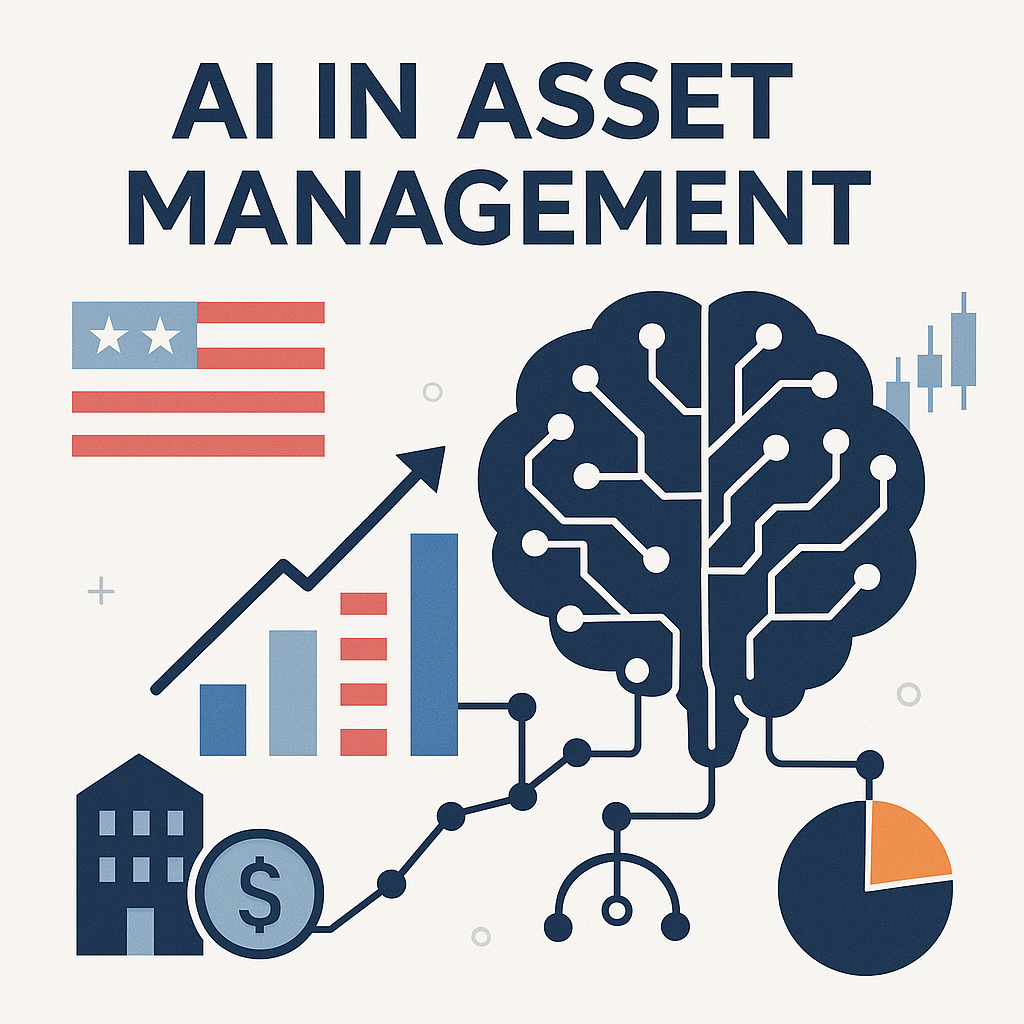
AI in Asset Management: How Artificial Intelligence is Transforming Investment Strategies in 2025
Artificial Intelligence (AI) is revolutionizing the world of asset management in the United States. As we move into 2025, AI-driven solutions are reshaping how investment portfolios are constructed, monitored, and optimized. This comprehensive guide explores the impact of AI in asset management, the top AI tools and platforms, and what investors and asset managers need to know to stay ahead.
Understanding AI in Asset Management: The 2025 Landscape
AI in asset management refers to the use of advanced algorithms, machine learning, and data analytics to enhance investment decision-making, risk management, and operational efficiency. In 2025, U.S. asset managers are leveraging AI to process vast datasets, identify market trends, and automate trading strategies with unprecedented speed and accuracy.
Key Benefits of AI in Asset Management
- 📈 Enhanced Portfolio Performance: AI models analyze market data in real-time, uncovering opportunities and risks that traditional methods may miss.
- ⏱️ Operational Efficiency: Automation reduces manual tasks, streamlining compliance, reporting, and client communication.
- 🛡️ Risk Management: Machine learning algorithms detect anomalies and predict market downturns, helping managers mitigate losses.
- 🤝 Personalized Client Experiences: AI-driven insights enable tailored investment solutions based on individual client profiles.
TIP: Asset managers adopting AI in 2025 report improved returns and client satisfaction compared to those relying solely on traditional methods.
Top 10 AI Tools and Platforms for Asset Management in 2025
Selecting the right AI platform is crucial for maximizing returns and efficiency. Here are the top 10 AI tools and platforms U.S. asset managers are using in 2025:
- BlackRock Aladdin
- Bloomberg AIM with AI Analytics
- Charles River IMS AI Suite
- State Street Alpha AI
- FactSet AI Analytics
- SimCorp Dimension AI
- Schroders Data Insights Unit
- Two Sigma Venn
- Kensho AI (S&P Global)
- Qontigo Analytics
Side-by-Side Comparison Table
| Rank | Platform Name | Key AI Features | Best For | U.S. Market Adoption |
|---|---|---|---|---|
| 1 | BlackRock Aladdin | Predictive analytics, risk AI | Large institutions | Very High |
| 2 | Bloomberg AIM with AI | NLP, sentiment analysis | Multi-asset managers | High |
| 3 | Charles River IMS AI Suite | Trade automation, compliance | Mid-large asset managers | High |
| 4 | State Street Alpha AI | Data integration, forecasting | Institutional investors | Growing |
| 5 | FactSet AI Analytics | Data mining, portfolio AI | Quantitative managers | High |
| 6 | SimCorp Dimension AI | Workflow automation | Global asset managers | Moderate |
| 7 | Schroders Data Insights | Alternative data, ML models | Hedge funds, asset managers | Moderate |
| 8 | Two Sigma Venn | Risk analytics, scenario AI | Risk-focused managers | Niche |
| 9 | Kensho AI (S&P Global) | Event detection, analytics | Research teams | Growing |
| 10 | Qontigo Analytics | Portfolio optimization AI | Index and ETF managers | Moderate |
How AI is Used in Asset Management: Key Applications
1. Portfolio Construction and Optimization
AI algorithms analyze historical and real-time data to build diversified portfolios that maximize returns while minimizing risk. Machine learning models can simulate thousands of scenarios to identify optimal asset allocations.
# Example: Python pseudo-code for AI-driven portfolio optimization
import ai_portfolio_optimizer as apo
data = apo.load_market_data('2020-2025')
optimized_portfolio = apo.optimize(data, risk_tolerance='medium')
print(optimized_portfolio)
2. Algorithmic Trading
AI-powered trading systems execute buy and sell orders based on predictive analytics, market sentiment, and technical indicators. These systems can react to market changes in milliseconds, outperforming manual traders.
3. Risk Assessment and Management
Machine learning models continuously monitor portfolios for emerging risks, such as market volatility or geopolitical events. AI can alert managers to potential losses before they escalate.
4. Client Personalization
AI analyzes client preferences, financial goals, and risk profiles to recommend tailored investment strategies, improving client retention and satisfaction.
5. Regulatory Compliance
Natural Language Processing (NLP) tools scan regulatory documents and flag compliance issues, reducing legal risks and manual workload.
TIP: Integrating AI into compliance processes can reduce regulatory fines and improve audit readiness.
Challenges and Considerations for AI in Asset Management
While AI offers significant advantages, asset managers must address several challenges:
- 🔒 Data Privacy and Security: Protecting sensitive client and market data is paramount.
- 🧠 Model Transparency: Ensuring AI decisions are explainable and auditable for regulators and clients.
- 👩💻 Talent Gap: Recruiting and retaining AI and data science experts remains a challenge in 2025.
- ⚖️ Regulatory Uncertainty: Navigating evolving U.S. regulations around AI in finance.
The Future of AI in Asset Management: Trends to Watch in 2025
- Generative AI for Investment Research: Advanced models generate investment theses and reports, accelerating research workflows.
- AI-Powered ESG Analysis: AI evaluates environmental, social, and governance (ESG) factors, supporting sustainable investing.
- Real-Time Alternative Data Integration: AI ingests satellite imagery, social media, and IoT data for deeper market insights.
- Human-AI Collaboration: Asset managers increasingly use AI as a decision-support tool, blending human expertise with machine intelligence.
Conclusion
AI in asset management is no longer a futuristic concept—it’s a core driver of competitive advantage in 2025. U.S. asset managers leveraging AI benefit from enhanced portfolio performance, operational efficiency, and superior risk management. The top AI platforms, such as BlackRock Aladdin and Bloomberg AIM, are setting new standards for data-driven investing.
However, successful adoption requires careful attention to data security, model transparency, and regulatory compliance. As AI technologies continue to evolve, asset managers who embrace innovation and invest in AI talent will be best positioned to deliver value for their clients and outperform the market.
In summary, AI is transforming asset management by enabling smarter, faster, and more personalized investment strategies. The future belongs to those who harness the power of artificial intelligence to navigate the complexities of modern financial markets. ✅